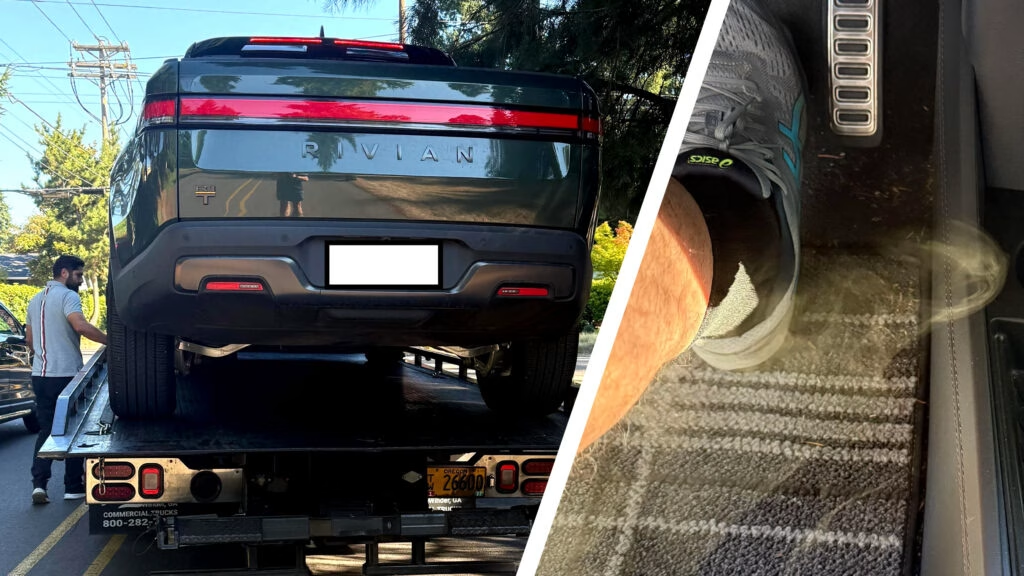What Happens When a Rivian R1T Suddenly Fails? A Firsthand Account
Imagine cruising through your neighborhood in a nearly new electric truck when, out of nowhere, everything locks up. That’s exactly what happened to one Rivian R1T owner in the US, and the story has sparked a wave of discussion about EV reliability and what it really means to own a cutting-edge vehicle.
Why Did the Rivian R1T Seize Up and Fill with Smoke?
The owner’s account is as unsettling as it is detailed. While slowing to a stop, the R1T abruptly seized—the wheels skidded, the entire truck shuddered, and then, as if in a bad dream, every warning light on the dash lit up. Seconds later, a foul-smelling smoke began to creep into the cabin from under the center console.
Stuck in the driver’s seat, the owner faced a dilemma: keep his foot on the brake to prevent the truck from rolling backward, or risk letting go and potentially causing an accident. All the while, smoke continued to fill the cabin. It’s the kind of scenario that makes you rethink the meaning of “peace of mind” in a modern vehicle.
Could This Happen on the Highway?
The incident happened on a quiet neighborhood street, which was a small mercy. But the owner couldn’t help but wonder—what if this catastrophic failure had struck on the highway, or in heavy traffic? The potential for disaster is obvious. As he put it, “I could have slammed into someone! I can’t trust this vehicle ever again. I wouldn’t let my family be in it.”
While EVs like the R1T are celebrated for their innovation, stories like this highlight the growing pains that come with new technology. According to a 2023 J.D. Power study, electric vehicles report more problems per 100 vehicles than their gasoline counterparts, with software and electronics being the most common culprits.
What’s the Real Cost of a Breakdown—Beyond Repairs?
Getting the R1T towed proved to be another headache. The owner decided to use his roadside insurance to get the truck to a Rivian service center. Instead of a smooth handoff, he was met with a five-minute lecture from a Rivian representative about not calling the company directly first.
Picture this: foot on the brake, hand propping the door open to air out the smoke-filled cabin, trying to wave traffic around, and being scolded over the phone about protocol. Not exactly the customer experience you’d expect from a brand promising to redefine the automotive world.
How Common Are Reliability Issues with New EVs?
Rivian isn’t alone in facing teething problems. Many new automakers, especially those pushing the boundaries with electric drivetrains and advanced software, have seen early reliability issues. Consumer Reports and other industry watchdogs have noted that first-generation EVs often act as “beta tests” for their owners, with unexpected bugs and breakdowns more common than in established gasoline models.
That said, it’s important to keep perspective. Most EV owners report positive experiences, and the majority of issues are resolved under warranty. Still, high-profile failures like this one can shake consumer confidence, especially when the root cause remains a mystery.
What Should You Do If Your EV Breaks Down?
If you ever find yourself in a similar situation, here are a few practical tips:
– Stay calm and keep safety first. If smoke is entering the cabin, exit the vehicle if it’s safe to do so.
– Engage the parking brake or use wheel chocks if the vehicle won’t stay put.
– Contact the manufacturer’s roadside assistance before arranging a tow—many EVs require special handling, and using third-party services can complicate warranty claims.
– Document everything. Take photos, record warning lights, and note the sequence of events. This can help technicians diagnose the problem and protect your interests if there’s a dispute.
Is This a Dealbreaker for Potential Buyers?
For some, stories like this are enough to put the brakes on an EV purchase. For others, it’s just part of the risk that comes with being an early adopter. The truth is, every new technology faces a learning curve, and automakers like Rivian are under intense pressure to iron out these issues quickly.
Industry experts suggest that as EVs become more mainstream, reliability will improve. Automakers are investing heavily in quality control and customer service, and regulatory bodies are watching closely. Still, transparency and responsiveness are key—when something goes wrong, owners need to feel heard and supported, not lectured.
What’s the Takeaway for Current and Future EV Owners?
The big takeaway? Owning an EV isn’t about perfection—it’s about smarter adjustments. Start with one change this week, like reading up on your vehicle’s emergency procedures or saving your manufacturer’s roadside assistance number in your phone. You’ll likely spot the difference in your confidence and preparedness by month’s end. And if you’re considering a Rivian or any other new EV, go in with your eyes open—ask tough questions, read real owner experiences, and remember: innovation always comes with a few bumps in the road.

